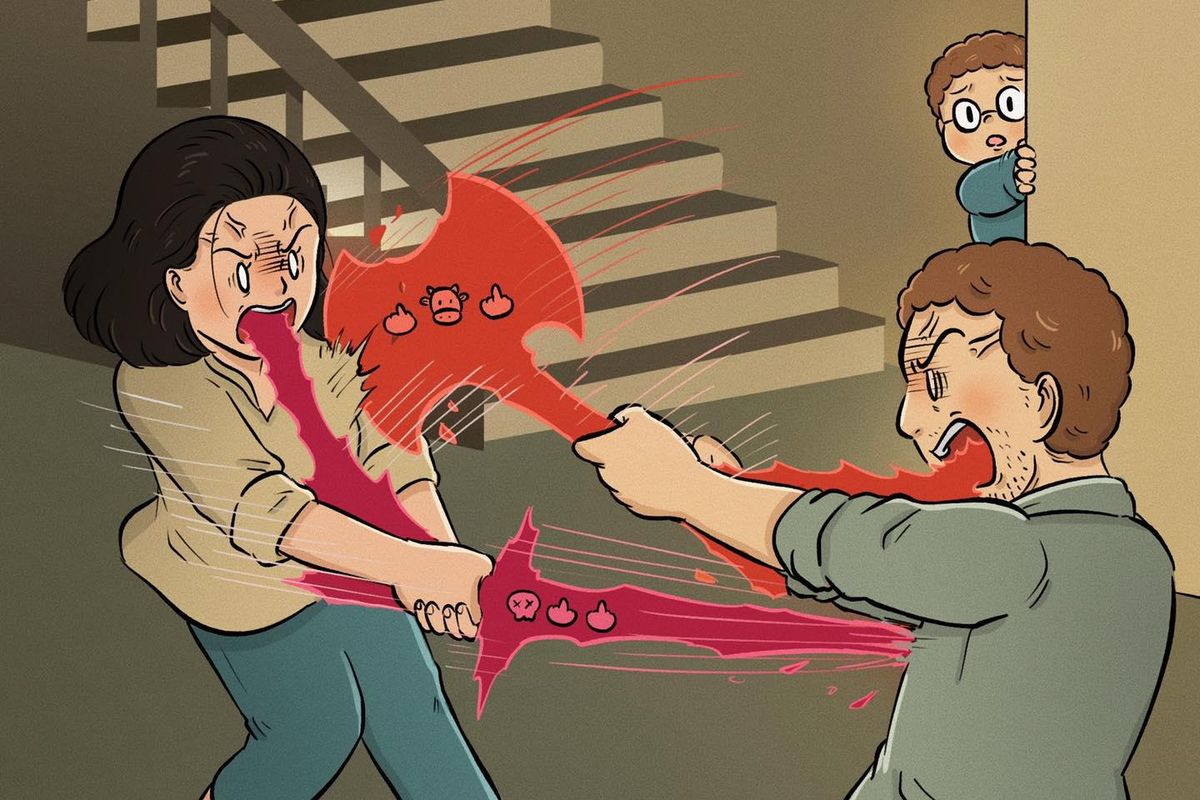Artist brilliantly illustrates the power of words in a cute, yet thought-provoking comic
To heal or to harm, the choice is yours.

"Words Have More Power Than We Thought" by Tum Ulit.
As the saying goes, “sticks and stones may break my bones, but words will never hurt me.” Science has proven, on multiple fronts, that this is not the case. And psychology aside, our hearts know just how much leverage both an insult and a compliment can carry. Just think of how your body reacts when remembering the very best thing anyone has ever said about you … and the worst.
Though that saying might be less than accurate, the phrase “a picture’s worth a thousand words” certainly still holds up, especially when it comes to the work of Thai artist Tum Ulit.
Ulit’s comics have captured hearts on Instagram, for both their sweet illustrative style and their powerful, sometimes heavy messages.
One strip from 2022 delivers a thought-provoking and intimate look depicting just how much what we say, for good or for ill, matters.
When used in anger, our words become weapons.
As seen (quite literally) with a couple arguing, insults become swords. Accusations become axes. Instead of practicing nonviolent communication, which focuses on authentically expressing emotions without insults, judgment, or put-downs, the couple use their words to further drive an emotional wedge between them.





And perhaps worst of all, though the husband and wife are intending to attack each other, their son, who hears it all, becomes caught in the crossfire of their unkempt rage.
There’s a reason why words of affirmation are part of the five love languages. As seen here, with the affectionate father visibly praising his son’s monster creation.





Having this kind of emotional fortitude later helps the son’s confidence become impenetrable, even when schoolmates (and the teacher) make fun of his monster. Which is, of course, totally inappropriate, but also inaccurate, because that little monster is so cute!
Words wound us. But wounds can heal with kindness.
When the kids meet, the son from the previous vignette, who saw his parents fighting, is still carrying the burden of hurtful words.


Clearly not from only his parents fight, but from bullying as well.


Yet with the help of his new friend, he learns that those thoughts don’t have to be carried.



The comic cuts to 15 years later, where the monster-creating kid is now a debuting artist, who comes face to face with one of his idols. In an esteem-crushing blow, the idol criticizes the artist’s work (a pain worse than death for most creatives).








The harsh judgment blasts like a torpedo straight to the artist’s heart, completely trapping him in his own disappointment.





That is, until his friend comes in to return the favor, and save the day with kindness. This time, encouragement acts like a key, rather than a shield, but still just as effective.








Words can lift us up or knock us down in one breath. Having distance through technology doesn’t change that, ask anyone who's been trolled or cyberbullied. It’s easier now more than ever to be unkind without consequences online, but let’s remember that what we say does matter. The choice to be kind is always there. And if there is so much power contained in the words we use, let’s make that power a force for good.
This article originally appeared two years ago.


